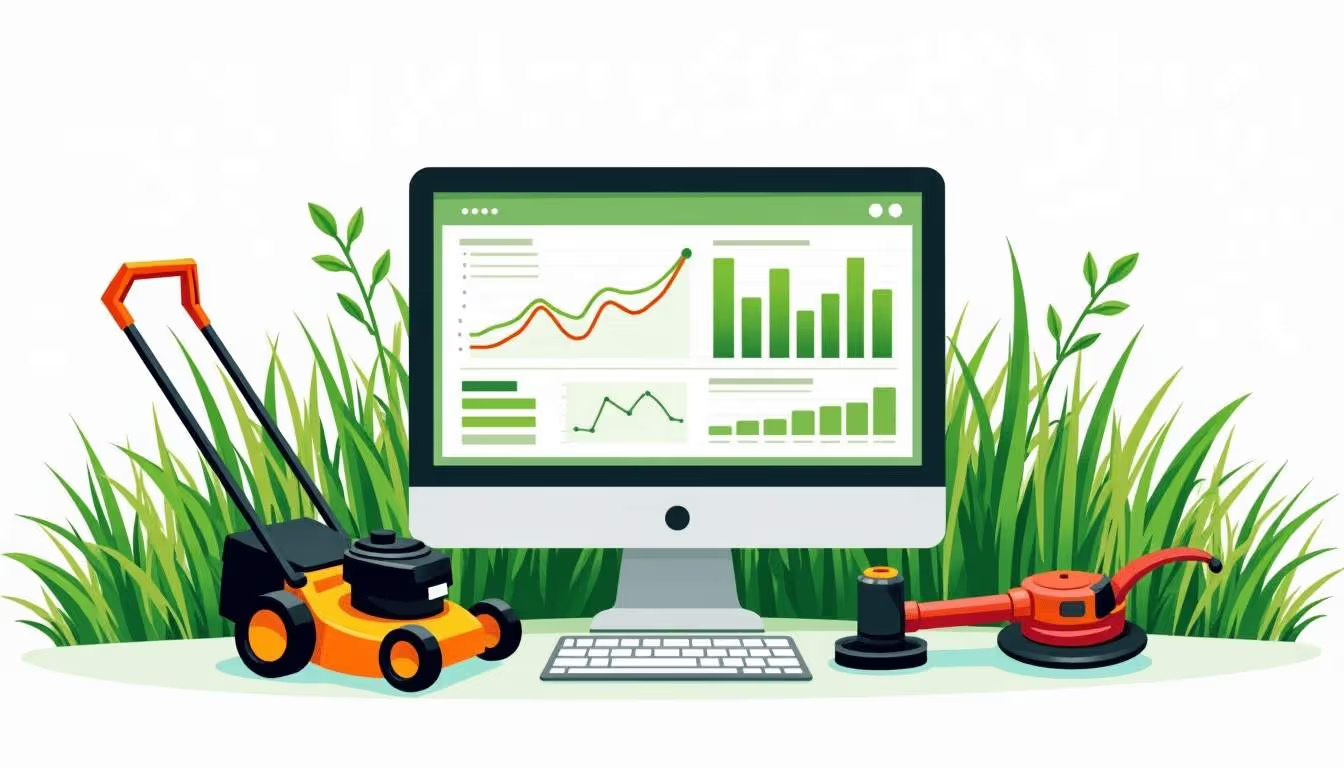Top Lawn Care Business Software Solutions to Streamline Your Operations
In today’s fast-evolving lawn care industry, efficiency and customer satisfaction are paramount. With the U.S. landscaping industry reaching a staggering $153 billion market value in 2024, the competition is fierce, and service providers must leverage technology to stay ahead. Lawn care business software solutions are transforming how companies manage scheduling, billing, customer retention, and operational workflows, enabling them to scale effectively and deliver exceptional service.
This article explores the top lawn care business software platforms designed to streamline operations, boost profitability, and enhance customer experiences. Whether you’re a small startup or an established company aiming to optimize your processes, understanding these tools can help you harness the full potential of digital transformation in lawn care.
Why Lawn Care Software is Essential for Modern Operations
The lawn care industry is undergoing significant change, driven by technology adoption and shifting customer expectations. Approximately 40% of U.S. households hire professional lawn care services, and the average homeowner spends around $500 annually on these services. With such a substantial market, businesses need to operate efficiently to capture and retain customers.
Moreover, the average American spends about 70 hours per year on lawn maintenance, highlighting a growing demand for professional services that save time and deliver quality results. Lawn care software solutions address these needs by automating routine tasks such as scheduling, route planning, billing, and customer communication. This automation not only reduces administrative overhead but also improves accuracy and responsiveness.
Industry data shows that over 70% of professional lawn care companies now use online scheduling and billing systems, underscoring the widespread recognition of these tools’ value. Additionally, the lawn care software market is projected to reach $7.8 billion by 2026, reflecting rapid growth and increasing adoption of digital solutions.
Furthermore, the integration of customer relationship management (CRM) features within lawn care software allows businesses to personalize their services based on client preferences and history. This level of customization can lead to enhanced customer satisfaction and loyalty, as clients feel valued and understood. By leveraging data analytics, companies can also identify trends in customer behavior, enabling them to tailor marketing strategies effectively and optimize service offerings.
In addition to improving operational efficiency, lawn care software can facilitate better communication between service providers and customers. Automated reminders for scheduled services, follow-up messages after a job is completed, and easy access to service history can significantly enhance the customer experience. As clients increasingly expect transparency and real-time updates, companies that utilize these digital tools are better positioned to meet and exceed those expectations, ultimately leading to higher retention rates and positive word-of-mouth referrals.
Key Features to Look for in Lawn Care Business Software
Choosing the right software can be a game-changer for lawn care businesses. Here are some essential features that top platforms typically offer:
1. Scheduling and Route Optimization
Efficient scheduling is critical to maximizing productivity. Leading software solutions provide calendar management integrated with GPS-based route optimization. This feature helps reduce travel time and fuel costs, which average around $1,200 annually for lawn care companies, while ensuring timely service delivery. Additionally, advanced scheduling tools allow for real-time adjustments, enabling businesses to accommodate last-minute requests or changes in weather conditions, further enhancing customer satisfaction and operational efficiency.
2. Customer Relationship Management (CRM)
A robust CRM system helps manage client information, track service history, and facilitate communication. With an 80% customer retention rate in the industry, maintaining strong relationships is vital for sustainable growth. Furthermore, many CRM systems offer automated follow-up reminders and personalized marketing campaigns, ensuring that clients feel valued and engaged. This proactive approach not only fosters loyalty but also encourages word-of-mouth referrals, which are invaluable in the lawn care sector.
3. Billing and Payment Processing
Automated invoicing and online payment options streamline cash flow management. Given that the average cost per lawn care visit ranges from $50 to $100, seamless billing enhances customer convenience and reduces payment delays. Moreover, some platforms offer recurring billing options for regular clients, allowing for predictable revenue streams and minimizing administrative workload. This not only benefits the business but also provides clients with a hassle-free experience, as they can easily manage their payments without the need for constant reminders.
4. Marketing and Sales Tools
Many lawn care businesses spend about $1,500 annually on marketing efforts. Integrated marketing tools within software platforms can help manage campaigns, track leads, and convert prospects more effectively. Features such as email marketing automation and social media integration allow businesses to reach a broader audience and engage with potential customers in a more meaningful way. Additionally, analytics tools can provide insights into campaign performance, enabling businesses to refine their strategies and maximize their return on investment.
5. Reporting and Analytics
Data-driven insights enable businesses to monitor performance, identify trends, and make informed decisions. Reporting features often include revenue tracking, customer growth, and service efficiency metrics. The ability to generate customizable reports can help business owners pinpoint areas for improvement, such as identifying peak service times or understanding customer preferences. This level of analysis not only aids in strategic planning but also empowers lawn care companies to adapt quickly to market changes and customer needs, ensuring long-term success in a competitive landscape.
How Software Solutions Enhance Profitability and Growth
Integrating lawn care business software into daily operations has a direct impact on profitability and growth. Automation reduces manual errors and administrative time, allowing staff to focus on service quality and customer engagement. For example, reducing scheduling conflicts and optimizing routes can significantly cut down on fuel costs and labor hours.

Given that the average hourly rate for lawn care services ranges from $25 to $50, improving operational efficiency translates into higher margins and the ability to take on more clients without increasing overhead. Additionally, automated billing and online payments accelerate cash flow, which is vital for maintaining healthy business finances.
Marketing automation embedded in these platforms helps businesses attract and retain customers more effectively. With an industry customer retention rate of 80%, nurturing existing clients through personalized communication and timely service reminders ensures steady revenue streams and long-term success.
Future Trends in Lawn Care Software
The lawn care industry is embracing cutting-edge technologies such as AI and robotics to further streamline operations. The global AI in lawn care market, valued at $250 million in 2022, is expected to grow at a 12% compound annual growth rate through 2027. This growth is driven by innovations like robotic lawn mowers, whose usage increased by 20% annually between 2019 and 2022.

Precision lawn care, involving GPS-guided equipment, is already adopted by 35% of professional lawn services. Software platforms that integrate with such technologies will provide even greater efficiency and service quality. As these trends continue, lawn care businesses that invest in advanced software solutions will be better positioned to capitalize on emerging opportunities.
Conclusion
In an industry as competitive and dynamic as lawn care, leveraging the right business software is no longer optional—it’s essential. From scheduling and route optimization to billing, CRM, and marketing automation, these platforms empower lawn care companies to operate more efficiently, reduce costs, and enhance customer satisfaction.
As the market continues to grow, with the lawn care software segment projected to reach $7.8 billion by 2026, adopting these digital tools will be a key differentiator. Whether managing a small local service or scaling a multi-million dollar operation, investing in top-tier lawn care business software solutions is a strategic move to streamline operations and drive sustainable growth.








